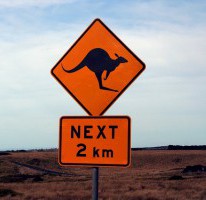Keen to invest in Australian property after going through our articles about investing? Well, here’s a quick checklist of items to manage your expectations (and finances!) and get you on the right track towards investing in Australian property.
✓ Qualification
All foreign non-residents in Australia are only allowed to buy new property or vacant land in Australia, and are not eligible to purchase an existing or established (second-hand) property. Residents of Australia can buy any type of property, subject to approval and conditions by the authorities, based on their resident status.
✓ Taxes
Property investors have to pay stamp duty on purchase of property, which can range from 0.3% to 2.5% depending on the location of the property. For properties over a certain amount, an annual land tax also applies.
FYI, if you’re a foreign investor planning to buy property in the state of Victoria, you will be subject to two taxes: 3% tax on the purchase price, and a further 0.5% absentee tax from July 2016 if the property (house) is not occupied.
✓ Good Yield & Capital Growth
One of the factors that attract foreign investors to Australia is the good rental yield from investment properties. The rates can go from 3.5% to 5% or more, depending on location. Besides seeing positive rental yield, properties in Australia also experience good capital growth potential, as migration to Australia increases, along with home values.
 ✓ Location
✓ Location
As with all property investment, location is of paramount importance. For foreign investors, the most promising investment grade is undoubtedly near large Australian cities like Sydney, Melbourne, Brisbane and Perth. While cities such as Melbourne and Sydney are popular choices, Perth and Brisbane are coming up as strong contenders for good investment potential. Research is vital before dumping your money into a property, and consider the usual indicators (infrastructure, proximity to facilities and amenities, education, healthcare, lifestyle advantages, and economy) to help you get the best out of your investment.
Apartments will be more popular closer to the central business district (CBD), usually 4 – 8 km, while landed properties can be placed further out, about 6 – 12 km from CBD. Locations within walking distance to shopping, dining, public transport, parks, schools and leisure areas will be higher in demand compared to more isolated residentials.
 ✓ Lower is better
✓ Lower is better
Most cities around the world have come to embrace high-rise residentials, but in Australia, the best growth comes from low rise properties. These benefit from lower maintenance costs, higher land content values, and much less competition when it comes to selling or renting. Oversupply of high-rise apartments is also something to factor into your investment decisions.
✓ Size matters
Just like how height matters (refer above), the size of properties, or homes in Australia is important too. While smaller units are the rage in metropolitan cities around the world, the most lucrative properties in Australia are those with plenty of space, especially for lawns or balconies. Set your sights on an apartment which is at least 50 square metres, townhouses with private courtyard, or small- to medium-sized houses with an outdoor area for that alfresco dining feel.
✓ Know the area
The scariest thing about investing in a country that you don’t live in and not familiar with is the worry that you’re walking blind into a bad deal. Take off the blindfold by getting to know the area personally, or hire the services of a reliable local property agent. It doesn’t hurt to do some research beforehand as well, so that you can discuss it with your agent. If possible, find a person who isn’t related to any particular development project, so that you can get a subjective opinion and unemotionally invested consultant who isn’t biased and able to offer you useful advice.
Now that you’re armed with the basic know-how about investing Australia, the next time is to find the perfect place. Why not take a look at some of the properties in our Estate123 Overseas property section?
References
RealEstate.com.au (link)
Foreign Investment Review Board of Australia (link)





